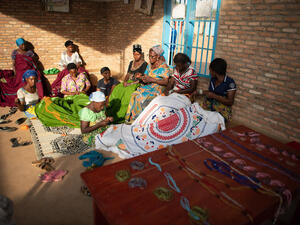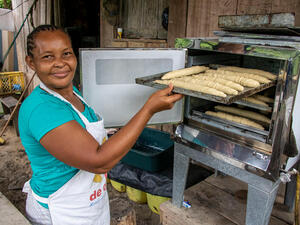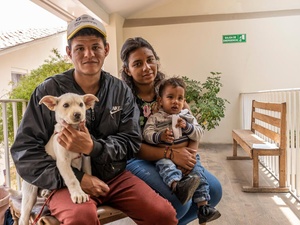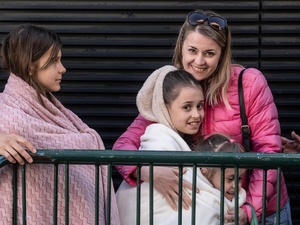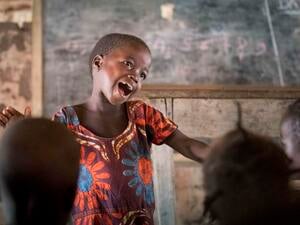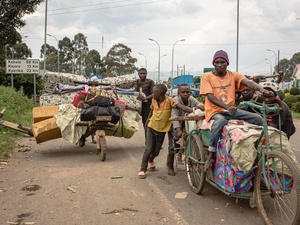Farming together fosters ties between Burundian refugees and their Congolese hosts
Farming together fosters ties between Burundian refugees and their Congolese hosts

Pierre (left), a Burundian refugee, and his friend Zacharie, a local Congolese, irrigate their cabbage fields in Tabac Congo locality in the Democratic Republic of the Congo's Tanganyika province.
The sound of a lively song floats down a hill where a group of Burundian refugees and their Congolese neighbours are farming together near the shores of Lake Tanganyika, in the Democratic Republic of the Congo (DRC).
Zacharie, 25, proudly shows off the land he is cultivating in the Tabac Congo locality, some 15 kilometres outside of Kalemie town.
"I became interested in agriculture by watching Burundian refugees farming and growing tomatoes, cabbages, onions and aubergines,” says the Congolese father of one. “A few years ago, there were very few of these vegetables at the local market.”
His Burundian friend, Pierre, 41, nods in agreement. “When I was working in a field, Zacharie often stopped by on his way to town,” he says. “He would ask a lot of questions and seemed interested in my work. One day, I asked him to join me to harvest vegetables.”
Pierre adds that the generosity of the local Congolese community has encouraged him and many other Burundian refugees to build lives for themselves in the Tabac Congo area, where they found safety after fleeing Burundi’s post-election violence in June 2015.
"I try to give back to the community that has hosted us for so long."
With his wife and four children, and alongside thousands of other refugees, Pierre had used the cover of night to reach the border city of Uvira, in the DRC’s South Kivu Province before taking a boat south on Lake Tanganyika, until they reached Kalemie. Devastated at having left his belongings and his livelihood as a farmer behind, he never imagined at the time, that he would manage to rebuild his life.
“The first days were not easy, but we arrived here with other families who were able to speak Swahili. That helped us in finding some small jobs and to slowly earn a living and put a roof over our heads,” recalls Pierre. “The first months we were living with other families in a small shelter. I now work hard, have my own house, and try to give back to the community that has hosted us for so long.”
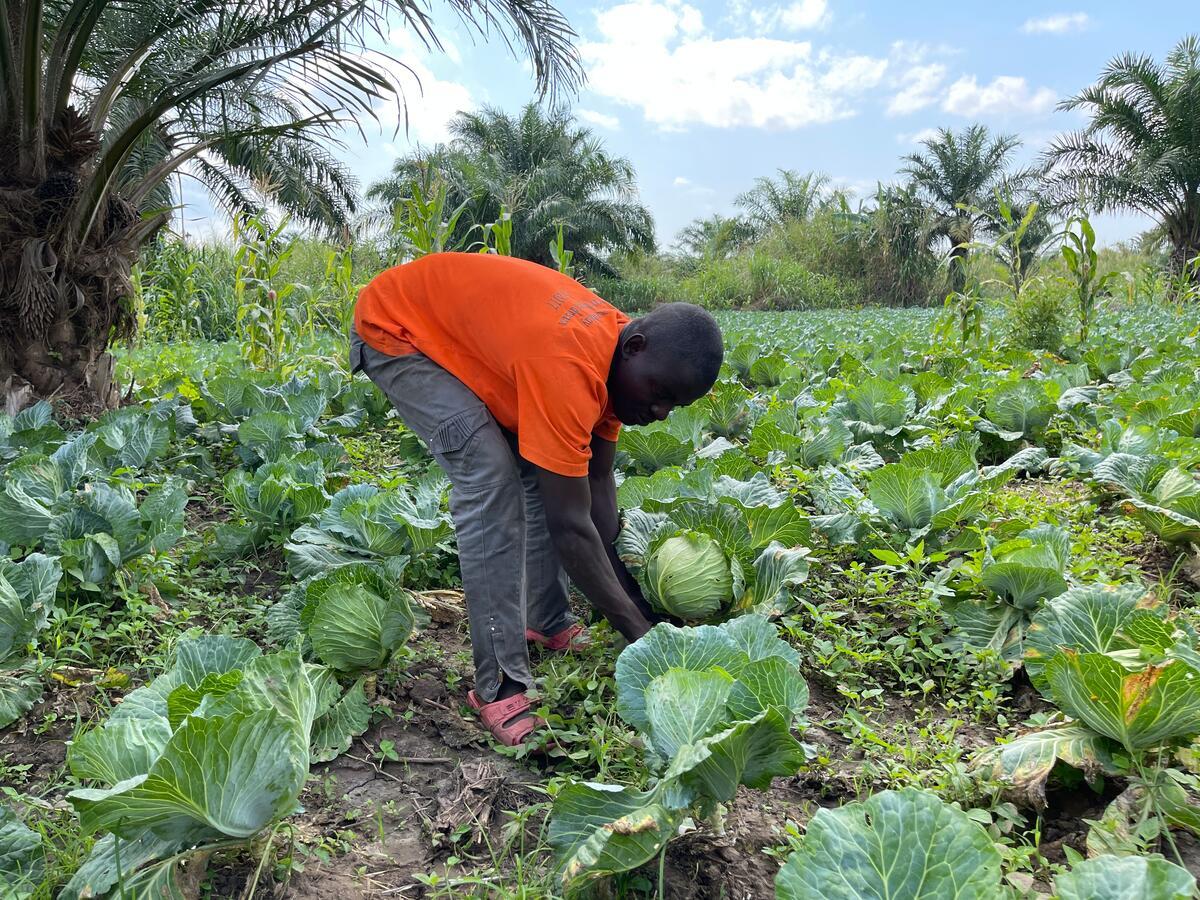
Zacharie, 25, learned everything he knows about farming from his friend Pierre, a Burundian refugee.
Before he met Pierre, Zacharie was also struggling to get by on small jobs like producing palm oil for cooking. What started as a seasonal job working alongside Pierre soon became full-time.
With Pierre’s support, Zacharie has learnt techniques for growing vegetables and now rents a small piece of land that he farms, earning some money to take care of his family.
“I learnt everything from scratch – from ploughing the field, to selecting the right seeds and tools to farm,” says Zacharie.
For his part, Pierre has learned Swahili from Zacharie.
“We plough this land by the sweat of our brow,” he says. “Every day is a struggle, but we have to put food on the table."
He adds that the COVID-19 pandemic and rising costs have created additional challenges. “Good quality seeds have become expensive, and we often lack land where we can cultivate with adequate tools.”
UNHCR, the UN Refugee Agency, and its partners are trying to address some of these obstacles by providing refugees with agricultural tools and seeds and advocating with local authorities for access to arable land.
“Our operation in the DRC is one of the most underfunded in the world and we are trying to create sustainable farming initiatives like this one to enhance refugees’ self-reliance,” says Mamadou Cissokho, the Head of UNHCR’s Sub-Office in Kalemie. To date, UNHCR has received only 40 per cent of the US$225.4 million required to respond to the needs of displaced people in the DRC.
"Seeing Pierre and his family do so much in a foreign country has taught us a lot."
Regardless of the challenges, the hard work and skills of refugees are recognized and appreciated by many in the area.
“We appreciate their solidarity and willingness to teach others,” says Windo, a local chief in one of the villages in Tabac Congo. “We buy fresh produce from traders at the local market who buy the vegetables directly from Pierre and other refugee farmers.”
Pierre and his fellow refugee farmers dream of gaining access to more agricultural land and tools so they can plant and produce a wider variety of vegetables to be sold at the local market. In the meantime, they have shared their farming knowledge with over 40 young Congolese like Zacharie.
"I often take my friends to the fields, especially during the harvest season, to encourage them to start farming,” says Zacharie. "Seeing Pierre and his family do so much in a foreign country has taught us a lot.”


